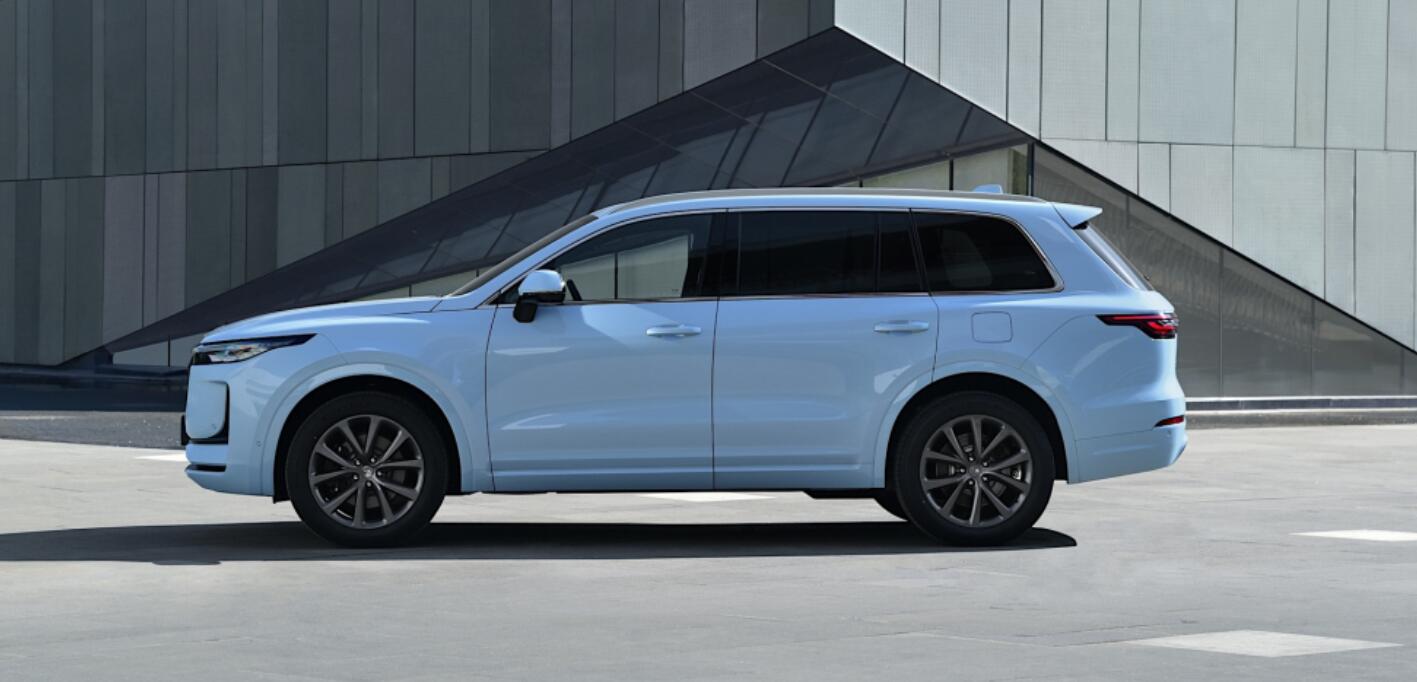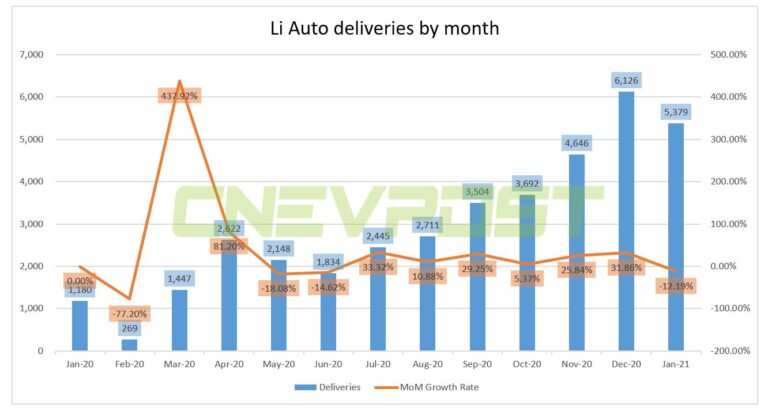Chinese electric vehicle company Li Auto today set an ambitious goal of becoming the No. 1 smart electric vehicle company in China with a 20 percent market share by 2025.
The company's founder, Li Xiang, laid out the plan in an internal letter today, implying that Li Auto wants to reach the level of VW and Toyota in the smart electric vehicle segment. VW's market share in China in 2020 is 19.3% and Toyota's share is 10%.
Li said he is optimistic about the sales growth of new energy vehicles, but at the same time believes that there is uncertainty in the global economy under the influence of Covid-19 and global debt.
"Based on this, we believe that global passenger car sales will hover around 65-70 million units per year without substantial growth," the letter said, adding, "We forecast global sales of new energy passenger cars to be around 40 million units in 2030, with China's sales reaching 20 million units. China's sales will reach 20 million units."
The China Association of Automobile Manufacturers said last year that it expects China's auto sales to reach 32.28 million units in 2025, including 8.07 million new energy vehicles, and that Li Auto's 20 percent market share corresponds to 1.6 million units of sales.
In the period of 2015-2020, Li Auto's mission is to "realize the ideal car and home".
In the 2020-2025 period, Li Auto's mission will be updated to "create a mobile home and a happy home".
In the next decade, Li Auto will choose two routes in parallel. This includes the extended-range electric platform as well as a high-voltage pure-electric platform capable of replenishing 300-500 km of range in ten minutes with 400 kW ultra-fast charging.
In previous earnings calls and financing presentations, Li Auto has repeatedly mentioned its plans in the pure electric field.
Simply put, Li Auto is currently working on a high-voltage platform, high-rate battery and ultra-fast charging technology and a next-generation BEV platform, and will launch several products based on the second-generation extended-range electric X platform high-voltage pure electric Whale platform and high-voltage pure electric Shark platform.
The internal letter also mentions that by 2030, ultra-fast charging technology with a range of 300-500 km in 10 minutes of charging will be fully available, thus making the charging experience close to refueling.
HPC Superchargers will have a return on investment that surpasses that of gas stations and better support the popularity of electric vehicles commercially, the letter said.
The internal letter also said, "The endgame of smart EV competition is data and chips."
"Autonomous driving will evolve at the pace of Moore's Law over the next decade, with hundreds of times more resolution in 2030 for both onboard arithmetic and sensors," the letter said.
With enough data and sufficient R&D investment, Level 4 autonomous driving is possible for leading companies in smart electric vehicles, the letter said, adding that autonomous driving will become an operating system for smart electric vehicles, not just a feature.
"By 2030, we believe Level 4 autonomous driving will become standard in every smart electric vehicle, and users will not shop for a smart electric vehicle that does not have autonomous driving capability," the letter said.

